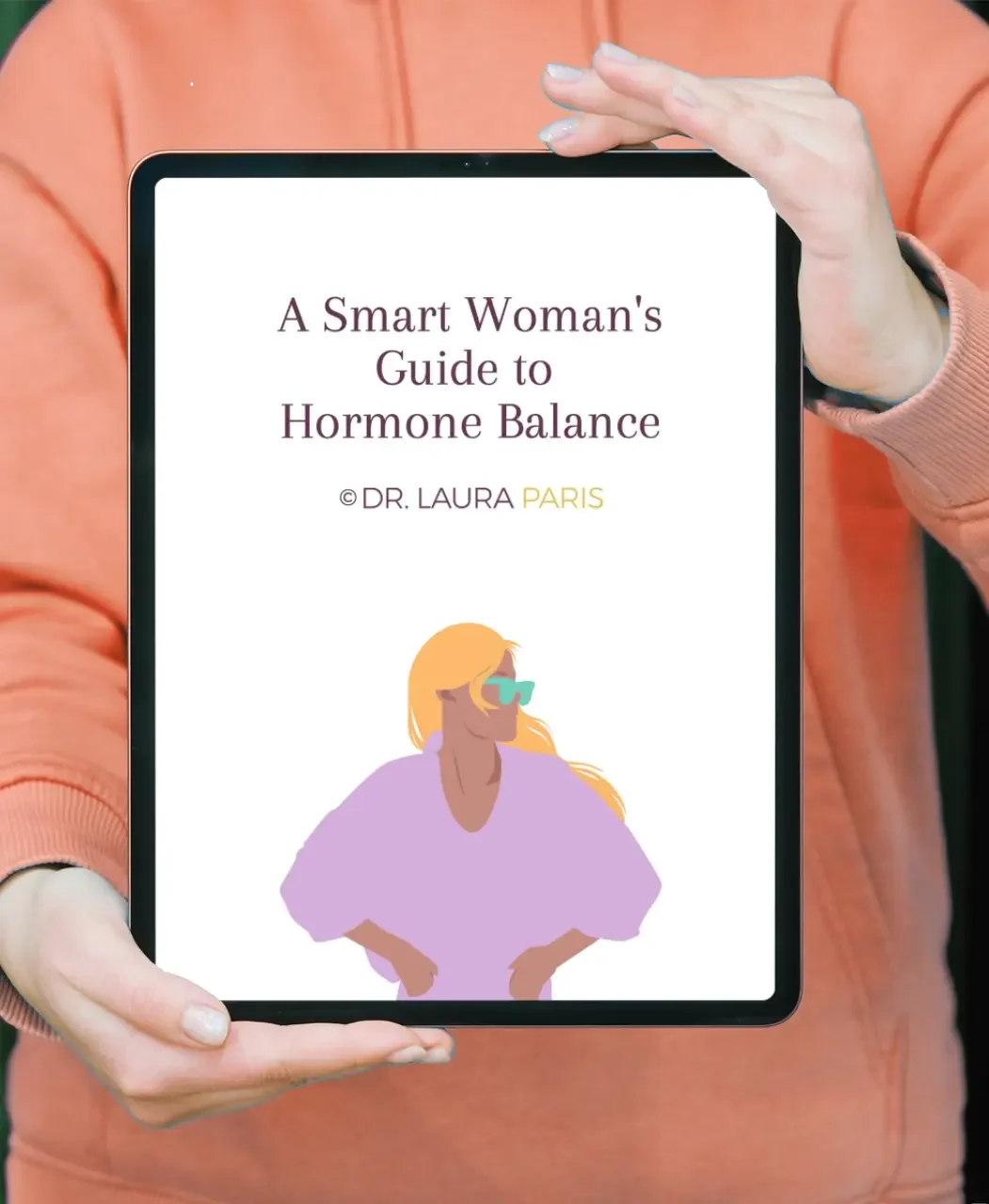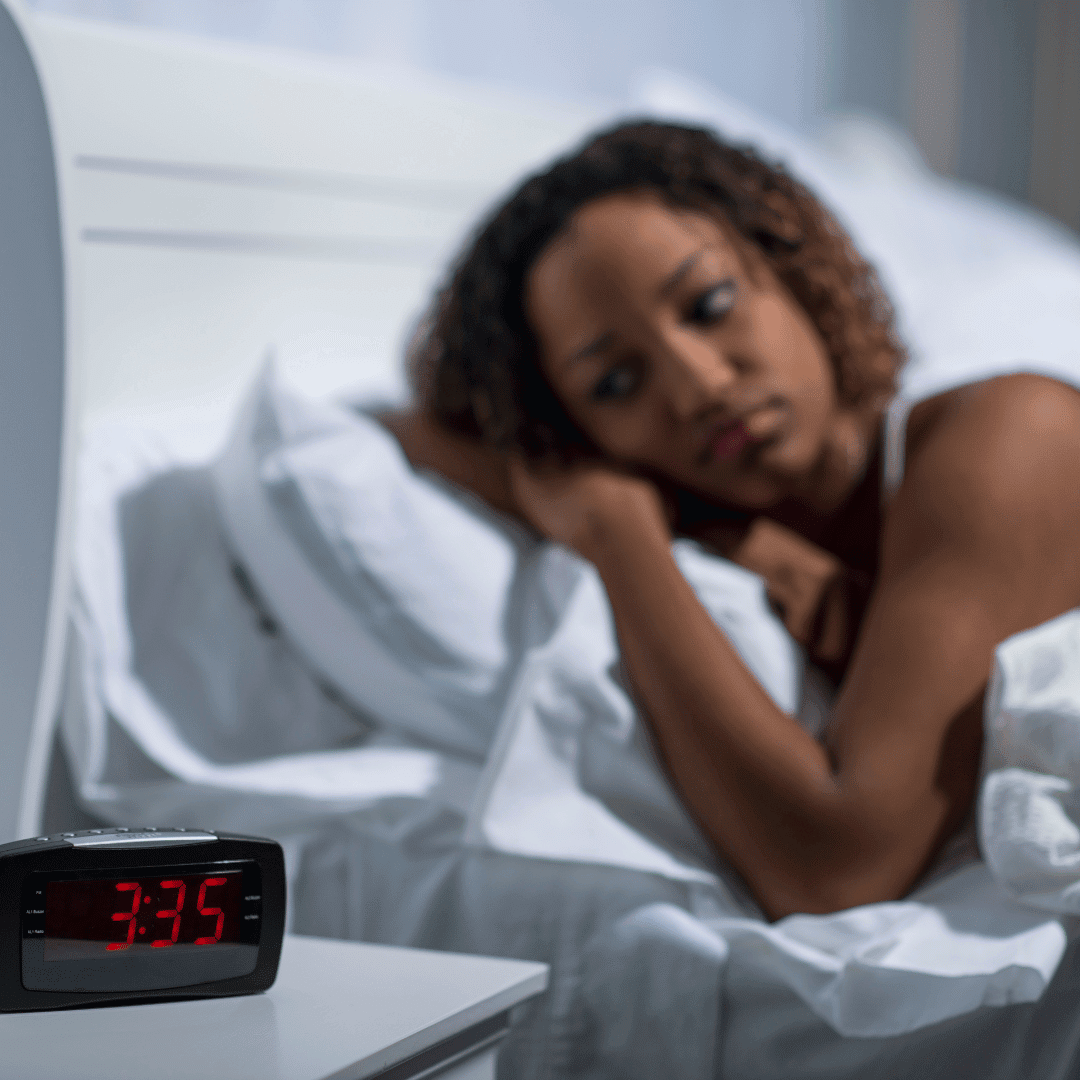
Are you ready to take charge of your health?I help women achieve vibrant health through all phases of life with a personalized, holistic approach.
Sign up for my newsletter and get your Free Gift:
A Smart Woman's Guide to Hormone Balance

Sign up for my newsletter and get your Free Gift:
A Smart Woman's Guide to Hormone Balance

Women entering perimenopause often find that sleep, once a natural and easy process, becomes an elusive and sometimes frustrating experience. This phase brings unique challenges for women over 40, and understanding the underlying causes of disrupted sleep can help you regain control and improve sleep quality.
Here are the five primary reasons women in perimenopause experience sleep difficulties:
Let’s explore each one.
During perimenopause, your estrogen and progesterone levels shift dramatically, often impacting sleep.
In perimenopause and menopause, your adrenal glands begin to support estrogen and progesterone production as ovarian function slows. This adrenal shift impacts cortisol, the hormone that regulates your sleep-wake cycle.
When estrogen declines, cortisol can spike earlier, causing early-morning awakenings. Additionally, hot flashes and night sweats may be tied to adrenaline surges, further disrupting sleep. In holistic practices, adrenal support is often a priority to help regulate these hormones and improve sleep quality.
Depression can be both a cause and a consequence of sleep disruptions during perimenopause. The relationship between declining estrogen, depression, and insomnia is complex:
Women with a history of depression are more susceptible to sleep problems during perimenopause.
Many women in perimenopause experience changes in breathing during sleep, such as sleep apnea. Unlike men, women’s SDB symptoms can be subtle, sometimes involving only mild snoring, with the primary symptom being daytime fatigue.
This increase in SDB is likely due to hormonal changes and potential weight gain around menopause. Both estrogen and progesterone support respiration, so their decline during perimenopause can contribute to breathing problems that interrupt sleep. For more about women and apnea read my article Women & Sleep Apnea: Busting the Myths.
Perimenopause is also a time when some women may develop fibromyalgia, which is often associated with poor sleep. Women are seven times more likely than men to develop fibromyalgia after menopause. Sleep disruption can exacerbate fibromyalgia pain, creating a cycle of discomfort and sleeplessness.
Other pain conditions like arthritis, hip pain, and frozen shoulder are more common in perimenopausal women and often interfere with sleep. Pain raises cortisol and adrenaline levels, which disrupt sleep.
The good news? All the factors that can disrupt your sleep during perimenopause—from hormone shifts to adrenal imbalances, mood changes, breathing issues, and pain—are treatable with a tailored, root-cause approach.
First, we identify what’s affecting your sleep, and from there, we explore solutions that work best for you as an individual. Whether it’s a comprehensive sleep study, herbal medicine, targeted supplements, hormone support, acupuncture, or cognitive behavioral therapy, there’s a broad array of safe and effective options that can help.
If perimenopause has made sleep elusive and you’re not sure where to begin, don’t hesitate to reach out for a discovery call. Together, we can find the solutions that will restore your rest and help you feel rejuvenated and energized each morning. To learn more about perimenopause, go to my article 5 Ways To Prepare for a Healthy Perimenopause.
Questions about perimenopause or sleep? Please ask below,

Dr. Laura Paris is a women’s health specialist who provides Acupuncture and Functional Medicine care at her two clinics in Capitola and Monterey, California. She also works with women remotely in the United States through telehealth appointments. Learn more about Laura here, and message her directly here.
Click the button to talk to Dr Laura on a 20-minute discovery phone call ($67)
Interesting website!! For many women, hormonal changes during the day are exacerbated after the sun sets, causing existing hot flashes to become more intense or triggering new hot flashes, as well as night sweats, during the evening and overnight hours. Use a supplement like gummies that make sense to your mind and body during the evening and overnight hours. – Nidra Nutrition